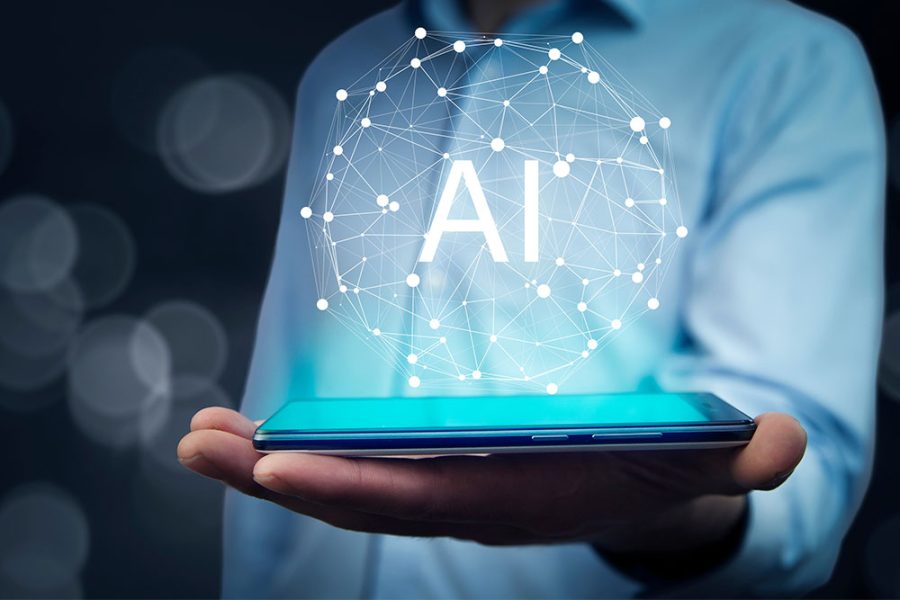- Navigator
- Business Retention and Expansion (BRE)
- Prospecting and Business Attraction

Welcome to the second article in my two-part series examining the impacts of artificial intelligence (AI) across various sectors of our economy and the role economic development organizations (EDOs) can play in supporting and encouraging local innovation and investment.
As AI permeates industries, it is transforming operational processes and reshaping the economic landscape. From Manufacturing and Life Sciences to Automotive and Agriculture, AI’s far-reaching influence presents both extensive opportunities and formidable challenges.
In this article, I provide EDOs with practical recommendations about how to harness the full potential of AI within their communities to drive economic growth and ensure that their regions remain competitive and prosperous in an increasingly AI-driven world:
Empowering Economic Development: Strategies for AI Workforce Development
Cultivate a Skilled Workforce
EDOs should prioritize the development of a workforce well-versed in AI and related digital skills. This entails collaborating with local universities, community colleges, and technical schools to establish comprehensive training and education programs. These initiatives should encompass a spectrum of skills, ranging from basic digital literacy to advanced AI and machine learning competencies.
Identify Local Skill Gaps
Understanding and bridging specific skill gaps within the local workforce is crucial to enable the adoption and advancement of AI technologies across industries. EDOs can conduct workforce needs assessments to gain insights into the demand for AI skills within their region. This data-driven approach facilitates targeted workforce development efforts.
Foster Practical Experience
Initiatives such as apprenticeships, internships, and on-the-job training programs, conducted in collaboration with local businesses, provide invaluable hands-on experiences in AI applications. These opportunities are instrumental in preparing the workforce for roles created or transformed by generative AI.
Promote Inclusivity
EDOs should consider programs aimed at fostering inclusivity and diversity within the AI workforce. This includes outreach efforts targeted at underrepresented groups in the tech field. Scholarships, career fairs, and awareness campaigns can help broaden the talent pool and promote equal opportunities in AI-related fields.
Embrace Lifelong Learning
The rapid evolution of AI and related technologies demands a culture of continuous learning and adaptability. EDOs can support this by providing access to online learning platforms, organizing local workshops, and hosting seminars focused on the latest AI advancements. Encouraging ongoing skill development ensures that the workforce remains well-equipped to navigate evolving technological landscapes.
By placing a strong emphasis on workforce development with a specific focus on AI and digital skills, EDOs can ensure their communities are adequately prepared to meet the demands of industries influenced by generative AI. This strategic approach not only addresses immediate workforce needs but also positions regions for sustained economic resilience and long-term growth in the face of rapid technological change.
Cultivating Innovation: Strategies to Boost AI Ecosystems for Economic Development
EDOs are encouraged to champion the development of robust AI ecosystems that embrace a network of sector and industry players, academic institutions, and governmental entities. The primary focus should revolve around creating nurturing environments where AI innovation can flourish.
Enable Supportive Policies
One cornerstone of nurturing AI ecosystems is the development of supportive policies. EDOs can take an active role in advocating for and assisting in the formulation of regulations that foster AI research and development. These policies should strike a delicate balance between promoting innovation and addressing concerns related to data privacy and ethical AI usage.
Invest in Infrastructure
Investing in infrastructure constitutes a pivotal element in sustaining a thriving AI ecosystem. This includes both digital infrastructure, such as robust broadband networks and data centers, and physical spaces like research parks and innovation hubs. These physical spaces serve as collaborative environments where businesses and academia can synergize and innovate together.
Foster Industry-Academia Collaboration
Facilitating collaboration between industry and academia is paramount. EDOs can assume a pivotal role in fostering partnerships that translate academic AI research into practical industry applications. This can be realized through collaborative research projects, technology transfer programs, and shared laboratories.
Create Government Partnerships
Collaboration with governmental bodies at the local, state, and federal levels is equally critical. EDOs can actively engage with government entities to secure funding, support, and resources essential for nurturing and sustaining AI ecosystems. This might encompass grants for AI startups, tax incentives for businesses investing in AI research, and funding for academic institutions leading AI research initiatives.
Support AI Startups and Small Businesses
EDOs should strive to create a supportive network for startups and small businesses in the AI sector. Initiatives may include mentorship programs, facilitating access to funding, and organizing networking events connecting startups with potential investors and industry partners.
Encourage Public Awareness and Engagement
Raising public awareness and engagement is fundamental to the growth of AI ecosystems. EDOs can undertake educational initiatives to inform the public about the benefits and opportunities presented by AI. These efforts can take the form of workshops, seminars, and public demonstrations of AI technologies.
By strategically implementing these measures to cultivate AI ecosystems, EDOs can foster an environment conducive to growth and innovation in the field of AI. This approach not only addresses the immediate needs of the industry but also positions communities as leaders in the AI sector, making them attractive destinations for businesses and talent seeking to be part of the AI revolution.
Capitalizing on Innovation: Strategies to Attract AI-Driven Investment
EDOs must proactively showcase their region’s readiness and capabilities to attract businesses and investments in AI-driven industries. This entails highlighting the region’s strengths in AI research, workforce skills, and technological infrastructure. Here are some strategic actions EDOs can take to attract AI-driven investments:
Invest in Strategic Marketing and Promotion
EDOs should craft comprehensive marketing campaigns that underscore the region’s AI achievements, success stories, and the supportive ecosystem for AI-driven businesses. This can encompass digital marketing efforts, participation in AI-focused trade shows, and hosting events dedicated to AI innovation.
Prioritize Networking and Relationship Building
Networking plays a central role in drawing investment. EDOs should cultivate and nurture relationships with key players in the AI industry, including tech giants, startups, venture capitalists, and academic researchers. Hosting networking events and actively participating in industry conferences can facilitate the formation of these critical connections.
Offer Tailored Investment Incentives
Tailoring investment incentives to suit AI-driven businesses is a highly effective strategy. This could involve offering targeted tax incentives, grants, or customized support services designed to attract AI startups and companies seeking to expand or relocate.
Demonstrate Commitment to AI Development
Illustrating an unwavering commitment to ongoing AI development is essential. EDOs can convey this commitment through continuous investment in AI research and development initiatives, active support for AI education and training programs, and robust collaborations with universities and research institutions.
Showcase Success Stories
Highlighting case studies and success stories of existing AI-driven businesses thriving in the region can serve as potent tools for attracting new investments. EDOs should meticulously document and publicize these stories to demonstrate the region’s capacity to support and nurture AI enterprises.
Project a Forward-Thinking and Innovation-Friendly Image
Lastly, EDOs should position their regions as forward-thinking and innovation-friendly environments. This involves not only focusing on present AI capabilities but also showcasing a dedication to adapting to future AI advancements and trends. Demonstrating a commitment to embracing evolving AI technologies can instill confidence in potential investors, showcasing the region as a hub for AI innovation.
By strategically implementing these recommendations, EDOs can bolster their efforts to attract AI-driven investments, making their regions appealing destinations for businesses seeking to harness the power of AI and contribute to the burgeoning AI ecosystem.
Supporting Entrepreneurship and Small and Medium Enterprises (SMEs) in the AI Era
EDOs play a pivotal role in nurturing entrepreneurship within their communities and empowering Small and Medium Enterprises (SMEs) to effectively integrate and harness AI technologies.
Given the breakneck pace of AI advancements, SMEs often grapple with the challenge of keeping up to date with the latest technological and skill developments. EDOs can provide indispensable assistance in bridging this knowledge gap. Here are strategic recommendations for EDOs to support entrepreneurship and SMEs in the AI era:
Facilitate Access to Funding Initiatives
EDOs can serve as catalysts by facilitating SMEs’ access to grants, loans, or investment opportunities specifically earmarked for AI projects. This financial backing can be instrumental in helping SMEs surmount the initial cost barriers associated with AI adoption.
Offer Targeted Training and Education Programs
EDOs can help demystify AI for SMEs by collaborating with local educational institutions or tech companies to design and deliver workshops, seminars, or courses tailored to the specific needs of SMEs. These programs should equip SMEs with practical knowledge of how AI can enhance various facets of their business operations.
Provide Advisory Services
EDOs can establish advisory boards or offer consultancy services that guide SMEs in understanding how AI can address their unique business challenges. This guidance can encompass practical insights into AI tool implementation, best practices in data management, and navigating regulatory requirements associated with AI adoption.
Foster Collaboration and Networking
EDOs can create platforms where SMEs can engage with AI technology providers, research institutions, and businesses that have successfully integrated AI. These platforms should facilitate knowledge exchange, partnerships, and even collaborative innovations.
Showcase Success Stories
Highlighting success stories about SMEs that have effectively integrated AI can serve as a potent motivator for others. EDOs should meticulously document and share these success stories through various media channels to illustrate the tangible benefits of AI adoption.
Create a Supportive Ecosystem
Establishing a nurturing ecosystem that fosters AI innovation and adoption among SMEs is important. This involves ensuring that SMEs have access to essential technological infrastructure and promoting a culture of innovation and risk-taking.
By prioritizing these strategies, EDOs can support SMEs in their adoption of AI technologies, enabling them to compete effectively in the AI-driven era. This support is instrumental for the growth and prosperity of SMEs and contributes to the region’s broader economic development and technological advancement.
At Camoin Associates, we are committed to staying up to date with the latest developments and advancements in the world of economic development, including the use AI and machine learning, especially when it relates to the work we do in supporting our clients. Reach out to us if you’d like to learn more about how we can help you strategically implement these solutions into your organization.





